Audio
Anna Wright - Bindi Maps (Part 2)
Ablequest by
2RPH3 seasons
14 mins
This is Part 2 of an interview with Dr Anna Wright, explaining how Bindi Maps works.

This is Part 2 of Dr Anna Wright explaining how Bindi Maps works. Dr Wright is Co-Founder and CEO of Bindi Maps, short for Be Independent, a voice activated app to help vision impaired users navigate large indoor spaces such as hospitals, universities and universities.
Original air date: 06.10.23
Speaker 1 00:04
With information on the latest developments in assistive technology and initiatives, from the studios of 2rph in Sydney, rph Australia brings you AbleQuest. Hello I'm Barbara Sullivan. Today's guest is Dr Anna Wright, the co -founder and CEO of Bindi Maps.
Speaker 1 00:30
Bindi Maps, short for Be Independent, is a mobile voice -activated app to help vision -impaired users navigate large indoor public spaces such as hospitals, universities, airports and libraries. We first interviewed Anna in 2019 when the product was being trialled at the University of Technology in Sydney.
Speaker 1 00:52
Bindi Maps has now expanded to shopping centres, more universities, hospitals and sporting events such as the Australian Open in Melbourne. In fact, the technology has gone global, appearing in New Zealand, Singapore and even Hungary.
Speaker 1 01:08
Elaine John -Tex spoke to Anna in our Glebe studios about Bindi Maps' success in helping people navigate their way around indoor spaces, even customising routes based on needs such as wheelchair -friendly directions.
Speaker 2 01:22
Welcome to the program, Anna. Three years ago when I last talked to you, you just launched a map for use in indoor spaces to help guide people with vision impairment. In fact, we replayed that interview in the last Able Quest.
Speaker 2 01:37
For listeners who didn't hear that interview, can you briefly recap how you came up with the idea of the app?
Speaker 3 01:44
Well, thanks very much for having me back Elaine. So three years ago, as a lifetime ago in startup world, we had launched in sort of a beta phase, Bindi Maps, which is an app or back then it was an app specifically designed to help people who were blind or low vision find their way around complicated indoor spaces.
Speaker 3 02:02
So at the time the trial was at the University of Technology Sydney. And yeah, we were having chats about all things Bindi Maps. The reason I started is that I actually do have a retinal condition that will eventually leave me blind.
Speaker 3 02:15
And so purely selfishly, I was thinking at the time I was working at UTS and I knew I could still do my job with screen readers and that sort of thing that I was more concerned about how I was going to find a classroom with buildings changing all the time classrooms changing all the time.
Speaker 3 02:32
So and again, probably quite naively, I was why hasn't anyone solved this yet? So went ahead and started working on the problem. And when we spoke, we had this beta test version of the app.
Speaker 2 02:47
And that was a trial in 2019 pre -COVID.
Speaker 3 02:49
pre COVID, yes, we had wonderful timing in that we got through the trial phase. We had a commercial product in market to help people find their way around complicated public spaces. And we were just about ready to start selling it when COVID came.
Speaker 3 03:05
And of course that was when the sky was falling and it was very hard to sell into businesses that thought that they might never see people in their public spaces ever again.
Speaker 2 03:16
So now Bendy Maps has spread throughout Australia, including universities, airports and I know even the Australian Open.
Speaker 3 03:24
Yes, from that app that we talked about back in 2019, we actually realized that everybody was getting lost around the university. So as well as having the text and audio, we then put in maps into the app.
Speaker 3 03:37
We've done wheelchair accessible routing options and we're currently working on some sensory sensitivity routing options. So for people on the spectrum that would like to avoid certain things. So we say now that the app is highly customizable.
Speaker 3 03:51
If you would prefer to avoid step stairs escalators, you can switch on wheelchair accessible routing, which means that you will avoid all of those obstacles. And it's not like you have to ask somebody where the lift is, the app will take you to the lift.
Speaker 3 04:07
The same thing, you can either have it in map view mode or you can turn it to text and audio where you will just be given audio directions on how to get to your location.
Speaker 2 04:18
Every time I go to a hospital, I have to ask that lady at the desk. At that poor lady at the desk. Where is the maternity unit? You're doing that person out of a job.
Speaker 3 04:26
Are you? No, definitely not because we never want to replace customer service people because that's what they love to do. But I think they probably also get annoyed being asked, where is the toilet 50 times in an hour when somebody could just use an app and then those customer facing people can do work around actually helping people with something a little bit more critical.
Speaker 3 04:49
And then it's not just those stuff that end up helping people find their way around. You've got surgeons. You've got the nursing staff. We know that they're already stretched incredibly thinly. We have to work.
Speaker 2 05:02
If you can explain to us the non -technical people in the world, how does the technology work? How am I going to use it? It's just...
Speaker 3 05:10
just an app. It's free. There's no login details. So it's very easy. You just download it from the app store or Google Play, accept the terms and conditions, and you're good to go. And it works very similarly to Google Maps.
Speaker 3 05:24
If you're a recited user of the app, you've got different categories that you can search you've got, or you can put in your search terms. So if you're looking, let's say you're going shopping, and you want to find a jewelry store.
Speaker 3 05:39
There's a couple of different options that are there in that shopping center from the closest one to the one that's furthest away. And then you can choose where you want to go to. And once you've made that selection, the app will then, if we're in map mode, will just draw you a line with a little arrow pointing you in the direction that you're supposed to go on that line.
Speaker 2 05:56
Because it's satellite technology. I asked you about how
Speaker 3 05:59
How does it work? Okay, so from the back end perspective, and my usual answer is magic, no, it's not satellite. So that's the way that Google Maps works is using GPS satellite. Once you're indoors or underground or even between tall buildings, GPS is not reliable.
Speaker 3 06:16
It's usually eight to 10 meters, which sometimes when you're trying to find specific things, it's just not good enough. So we've worked out a way to replicate that GPS indoors. At the moment, we use a mixture of beacons and other technologies, and we can now locate you within a meter to a meter and a half indoors.
Speaker 3 06:34
So it's a much more accurate experience. And we found that that's really what you need for somebody who's blind or low vision. They need to know where they are in the space and not eight to 10 meters, because if you're out on the street, that could be dangerous.
Speaker 2 06:49
So have there been any tweaks of the new technology?
Speaker 3 06:52
We've got so many tweaks happening right now, Elaine. It's actually really exciting. Probably about this time next year, we're going to be beaconless. We've worked out a different way of being able to create indoor positioning by just using the phone and the different sensors that are in the phone.
Speaker 3 07:07
And that's going to be accurate to about 30 centimeters in a 3D space. World leading, that one is. And we're very excited. I should do a shout out to the Office of Chief Scientist. They gave us a grant of a million dollars.
Speaker 3 07:21
Late last year to work on this. And we're really excited at the way that we're progressing.
Speaker 2 07:27
So you've got a mission, every indoor space, 100% accessible. So there's a focus still mainly on people with visual needs.
Speaker 3 07:35
People with vision impairment are always going to be one of our core user groups. We will never be leaving anyone behind and that's why we wanted to expand it out because we know that people who are blind or low vision, they might not be their only disability or only challenge that they need to be able to overcome within a complicated indoor space.
Speaker 3 07:57
And we want to make these spaces accessible to everyone. That's really what we want to do. So regardless of ability or individuals, we want everyone who wants to be able to go and study at a university or at a high school, get a job or go shopping without feeling that there is this barrier there that they're going to not be able to find the class.
Speaker 3 08:19
I mean, I've heard horror stories of people with blind or low vision in university settings where the classrooms changed and the lecturers left a note on the board, which has said where the new classroom is without even thinking that they've got one or two people out there with vision impairment and maybe some of these could be hidden disabilities.
Speaker 3 08:37
So people, why should you have to disclose everything? You should just be able to live your life independently and listen to your students.
Speaker 2 08:44
I noticed that your team of Bindi Mappas has grown quite a lot in the last three years.
Speaker 3 08:49
Yeah, we now have a team of 22, whereas split, mainly between Sydney and Melbourne, but we had two new staff members start this week, one of whom is up in the Gold Coast. So we have our first staff member up in Queensland.
Speaker 2 09:04
I noticed too that there's a map of Australia with dots all around increasing areas, taking up bendy maps and there's also in another country.
Speaker 3 09:14
Yes, very randomly. We are also installed at Budapest Airport in Hungary. And that was for the European Union government as part of their push to make their public transport spaces more accessible to people who are blind or low -vision.
Speaker 3 09:29
So very exciting to be working with the European Union. And yes, it is a little random. Most startups would be like we've expanded to America or Canada or the UK. And we are hungry, but we're owning it.
Speaker 2 09:41
Any other countries in the pipeline?
Speaker 3 09:43
Yes, Singapore. And we've also got some installations in New Zealand.
Speaker 2 09:47
So you just back from Canberra, the technology expert. So can you tell us about that and how much interest there was with the Bindi Maps?
Speaker 3 09:54
Yeah, so it was a really interesting summit. I was there to be a learner and an observer. So I got to hear a lot of stories of people from lived experience of a multiple of disabilities. So it was really interesting to hear from them and then also in the breaks and the sort of networking to chat to them about Bendy Maps.
Speaker 3 10:15
And it's one of those things is your little baby startup gets bigger and bigger. Most of the people I spoke to had used it. I had done in Melbourne and they'd used it at the Australian Open or at the Formula One Grand Prix or one of the other things.
Speaker 3 10:28
And they said, oh, like your Bendy Maps, we love Bendy Maps. It's just my little baby, but it's getting out there and I love it to hear the stories of how it's been able to help people. So Bendy's a shortening for be independent.
Speaker 3 10:39
So when I hear that from somebody with a disability that they were able to do something that they didn't think they'd be able to do independently but they could because of the app that just makes my heart sing.
Speaker 2 10:51
Anna, you've started with Bindi Maps, but are there other products that you can put Bindi with?
Speaker 3 10:56
Yeah, well, it's actually a product that we've just launched. We started with the app, and then we had to play around with doing a Bindi kiosk. Similar to the kiosks that you would see in the big shopping centers, except we were able to sort of shrink it down, put it on an iPad, which makes it a much cheaper solution for building owners, which means they can have more of them.
Speaker 3 11:15
So we're doing a trial of the Bindi Maps kiosks at St. Vincent's Hospital here in Sydney, and we also do them at events. And it just means rather than needing to download an app, if people don't want to be doing that, or they don't have a smartphone or they don't use a smartphone, it just means that you can go into something like the hospital.
Speaker 3 11:34
And there's an iPad there on a stand with the same sort of interface as the app in that you've got your categories or you can just search for what you want to go to. It will then on the kiosk will show you the route or you've got your written instructions there.
Speaker 3 11:48
If it's too complicated, the number of times I've seen people taking photographs of kiosks in some of the big shopping sets in Lerys. But on the kiosk, once you've been given your directions, it also serves up a QR code.
Speaker 3 12:00
If you're feeling like I can't remember all of those directions, that QR code will prompt you to open the app if you've got it or download the app and then it will just transfer all of those instructions onto your phone.
Speaker 2 12:13
So you have to be able to see to read the instructions.
Speaker 3 12:15
The instructions can be read out to you, but the voiceover will only work in an app. So the kiosks are more aimed at people who have got their vision, who just want that really quick solution. I would still recommend people who are blind or low vision to download the app because then we work with voiceover or voice assistant.
Speaker 3 12:34
It's a much more seamless experience.
Speaker 2 12:38
and you're also looking to integrate Bindi links.
Speaker 3 12:41
Yes, so that's the Bendy web to we're just about to start that trial, but that's more a web link that will go on to, let's say the hospital's website. So even before you go to hospital, you can do some planning.
Speaker 3 12:54
And because that was a lot of feedback we were getting from people is that, yeah, it's great when they get there, but if the bus drops them off at X, where is the best entrance? So they wanted to do that work at home.
Speaker 3 13:06
So that sort of Bendy web link, it's a visual thing. So it's not really aimed at people blind or low vision. But there is some text there that screen readers will pick up. But you can have a play around and just have a little fly through the hospital that you're going to and work out where everything is.
Speaker 3 13:23
And you mentioned maternity wards. I'm always so busy that I get the hospital and then try and find the flowers or the gifts. But this way you can check to make sure that the hospital does have a gift shop before you get with nothing.
Speaker 3 13:37
Hashtag if only there was an amp.
Speaker 2 13:39
that seems your mantra.
Speaker 3 13:40
That is my mantra.
Speaker 2 13:42
So where can we find out more?
Speaker 3 13:44
on our website which is just bindymaps .com. Link up with us on social media and if any of the listeners would really love to see a particular spot Bindymap, please reach out to me and just let us know what shopping centre, what hospital, what entertainment centre you'd like to see Bindymap'd.
Speaker 2 14:02
And that was Dr Anna Wright, who's the co -founder and CEO of Bindi Maps.
Speaker 1 14:13
You have just been listening to AbleQuest, a program that looks at developments in assistive technology and initiatives. From Elaine Wziontek and Barbara Sullivan, thank you for listening and goodbye till next program.
Continue listening

Blind Sports Australia CEO Matt Clayton speaks about its work with blind and vision impaired athletes across 21 sports.
Matt Clayton - Blind Sports Australia
Ablequest by 2RPH
5/5/2023
•13 mins
Audio

Vivid, Sydney's celebration of creativity, seen from a disability access focus by its director.
Gill Minervini - Vivid
Ablequest by 2RPH
19/5/2023
•14 mins
Audio

This program discusses dance movement therapy and how it works - featuring Cecilia King of the Dance Therapy Association.
Cecilia King - Dance Therapy
Ablequest by 2RPH
14 mins
Audio

What are the challenges of providing audio description on Oz TV? Hear Lauren Henley, Aust Federation of Disability Organisations.
Lauren Henley - Audio Description
Ablequest by 2RPH
16/6/2023
•14 mins
Audio

In Part 1 of a 2RPH interview, assistive tech expert David Woodbridge explores latest innovations to make everyday life easier.
David Woodbridge - Tech Update Part 1
Ablequest by 2RPH
30/6/2023
•14 mins
Audio

Features Robert Duff-Silsby of Luddi, Perth company developing assistive devices for all people and bodies.
Robert Duff-Silsby - Sexual Wellbeing
Ablequest by 2RPH
13 mins
Audio

In Part 2 of this conversation with 2RPH's Ablequest, expert David Woodbridge reviews latest assistive technologies.
David Woodbridge - Tech Update Part 2
Ablequest by 2RPH
28/7/2023
•14 mins
Audio

Matt Clayton of Blind Sports Australia and the Oz team's Chef de Mission, discusses the forthcoming World Blind Games in the UK.
Matt Clayton - World Blind Games
Ablequest by 2RPH
11/8/2023
•13 mins
Audio

Prof Kim Marriott of the Monash Assistive Technology and Society Centre, talks about the purpose and work of the Centre.
Kim Marriott - Monash Assistive Technology and Society Centre
Ablequest by 2RPH
25/8/2023
•13 mins
Audio

Ablequest features an interview with Serena Ovens, new CEO of Assistive Technology Supplies Australia or "ATSA".
Serena Ovens - Assistive Technology Supplies Australia
Ablequest by 2RPH
14 mins
Audio

Part 1 of an interview on the voice-activated app, Bindi Maps.
Anna Wright - Bindi Maps (Part 1)
Ablequest by 2RPH
14 mins
Audio

This is Part 2 of an interview with Dr Anna Wright, explaining how Bindi Maps works.
Anna Wright - Bindi Maps (Part 2)
Ablequest by 2RPH
14 mins
Audio

Artist Ebony Wightman of disability-led We Are Studios talks about art and challenge.
Ebony Wightman - We Are Studios
Ablequest by 2RPH
20/10/2023
•13 mins
Audio

Prof. Leeanne Carey discusses the SENSe program, her team's world-first therapy to help stroke survivors.
Leeanne Carey - SENSe Therapy
Ablequest by 2RPH
2/11/2023
•13 mins
Audio

Youthworks Accessibility Minister Bec Baines talks of making church accessible to young people with disabilities.
Bec Baines - Youth and Worship
Ablequest by 2RPH
16/11/2023
•14 mins
Audio

Nikki Hind, Australia's first blind fashion designer, discusses her work.
Nikki Hind: Blind Grit
Ablequest by 2RPH
1 December 2023
•14 mins
Audio

Dr Dimity Williams, family GP, recommends spending more time in nature - and a "green hour" each day.
Green Hour: Dr Dimity Williams
Ablequest by 2RPH
5 December 2023
•14 mins
Audio

Imagine sitting in a wheelchair for hours, being unable to move your fingers or arm to do simple things like pick up a glass.
Konstanze Hager - Bateo
Ablequest by 2RPH
Konstanze Hager - Bateo
•14 mins
Audio

Action Audio is a new language being created to transcend sport.
Machar Reid - Action Audio
Ablequest by 2RPH
Machar Reid - Action Audio
•14 mins
Audio

What a difference one person with experience, passion and energy can make to many lives.
Julie Ross-Edwards - Head High
Ablequest by 2RPH
Julie Ross-Edwards - Head High
•14 mins
Audio

Driver educator outlines what's needed for a person with disability to get a driver's licence.
Ronak Shah: on-road driving education
Ablequest by 2RPH
12 January 2024
•14 mins
Audio

Vision Australia's Christo Sarantakis talks of his life, blindness and assistive tech changes.
Christo Sarantakis of Vision Australia
Ablequest by 2RPH
26 January 2024
•14 mins
Audio

Introducing Australia's first pictureless feature film, TOUCH, showing in Sydney.
Majella Knobel: "Touch" - open air movie
Ablequest by 2RPH
9 February 2024
•14 mins
Audio

An expert discusses the use of horticultural therapy for people with disabilities.
Steven Wells: horticultural therapy
Ablequest by 2RPH
23 February 2024
•14 mins
Audio

Features articles on latest blind-assistive tech including a new bus app and smart ear buds.
Assistive tech news catchup
Ablequest by 2RPH
8 March 2024
•14 mins
Audio

Features an innovative hospitality industry training program for people with disabilities.
Saraya O'Connell - Hotel Etico Independence Program
Ablequest by 2RPH
22 March 2024
•14 mins
Audio

Guests discuss the Obi robotic dining assistant for people with upper arm disabilities.
Hugh Kingley and Rachel Dekkar: Obi
Ablequest by 2RPH
19 April 2024
•14 mins
Audio

A spy-themed computer program tackles the mystery of social encounters - outlined by its company's CEO.
Kathleen Davey - Social Science Translated
Ablequest by 2RPH
3 May 2024
•14 mins
Audio

A Sydney organisation delivers creative arts and life skills to people with disabilities.
ChoppA Green - Studio Artes
Ablequest by 2RPH
17 May 2024
•14 mins
Audio

An award-winning Central Coast NSW disability service shares its successful strategies.
Lonestar Makoni - Breaking Barriers Disability Services
Ablequest by 2RPH
31 May 2024
•14 mins
Audio

Part 1 of a conversation with an Australian neuroscience research pioneer about benefits of music in brain injury recovery.
Professor Sarah Wilson (part 1)
Ablequest by 2RPH
14 June 2024
•14 mins
Audio

Part 2 of a conversation with a leading neuroscientist of benefits of music in brain injury recovery.
Professor Sarah Wilson (part 2)
Ablequest by 2RPH
28 June 2024
•14 mins
Audio

A CEO talks about his company's award-winning assistive physical therapy device.
Justin Keenan - LusioMate
Ablequest by 2RPH
12 July 2024
•14 mins
Audio

Information about a program teaching good cyber-security practices to make daily life safer.
Jess Wilson: Be Connected
Ablequest by 2RPH
26 July 2024
•14 mins
Audio

A veteran print disability broadcaster with macular degeneration shares her experiences.
Teresa Plane - 2RPH
Ablequest by 2RPH
9 August 2024
•14 mins
Audio

The founder of a blind-assistive technology company shares latest developments.
Peter Ford - Control Bionics (part 1)
Ablequest by 2RPH
6 September 2024
•14 mins
Audio

Part 2 of an interview with the head of an innovative blind-assistive technology company.
Peter Ford - Control Bionics (part 2)
Ablequest by 2RPH
20 September 2024
•13 mins
Audio

Looks at a project to better inform refugee and migrant women on AI.
Good Things - Jess Wilson
Ablequest by 2RPH
4 October 2024
•14 mins
Audio

An expert with lived experience corrects some widespread misconceptions about stuttering.
Dale Williams - Stuttering Awareness Day
Ablequest by 2RPH
18 October 2024
•14 mins
Audio

An inventor discusses his an innovative cane tip to help people with blindness or low vision.
Peter Rickards - Sensaball
Ablequest by 2RPH
15 November 2024
•13 mins
Audio

Part 1 of an interview with an Australian expert on low-vision-assistive technology, on AI and other developments.
David Woodbridge (part 1)
Ablequest by 2RPH
29/11/2024
•14 mins
Audio

Conclusion of an interview with a leading Australian expert on blind-assistive technology.
David Woodbridge (part 2)
Ablequest by 2RPH
13 December 2024
•14 mins
Audio

Looks at the leading stroke treatment work of the Royal Rehabilitation Hospital, Ryde NSW.
Jason Redhead and Graham Cooper of Royal Rehab Ryde
Ablequest by 2RPH
10 January 2025
•14 mins
Audio

An innovative social media platform aims to address isolation and loneliness in the disability community.
Steve Bear - Alvie
Ablequest by 2RPH
7 February 2025
•12 mins
Audio

Australia's largest provider of Auslan sign services outlines its important work.
Brett Casey - Deaf Connect
Ablequest by 2RPH
21 February 2025
•14 mins
Audio

Looks at an Australian organisation's work at helping men seek help and build self-awareness.
Tommy Herschell - Find Ya Feet
Ablequest by 2RPH
7 March 2025
•14 mins
Audio

A speech pathoplogist discusses her work with young people's complex communication needs.
Denise West - Scope
Ablequest by 2RPH
21 March 2025
•14 mins
Audio

A vision-impaired disability rights advocate talks of her work and learning podcast skills.
Freya Wolf
Ablequest by 2RPH
4 April 2025
•14 mins
Audio

A leading Australian eye researcher talks of his team's work in creating new hope for people with retinal damage.
Raymond Wong - Centre for Eye Research Australia
Ablequest by 2RPH
18 April 2025
•14 mins
Audio

A wheelchair-using business owner, facilitator and car rally driver shares experiences and insights.
Mel Harrison - Sitting Low, Reaching High
Ablequest by 2RPH
2 May 2025
•13 mins
Audio
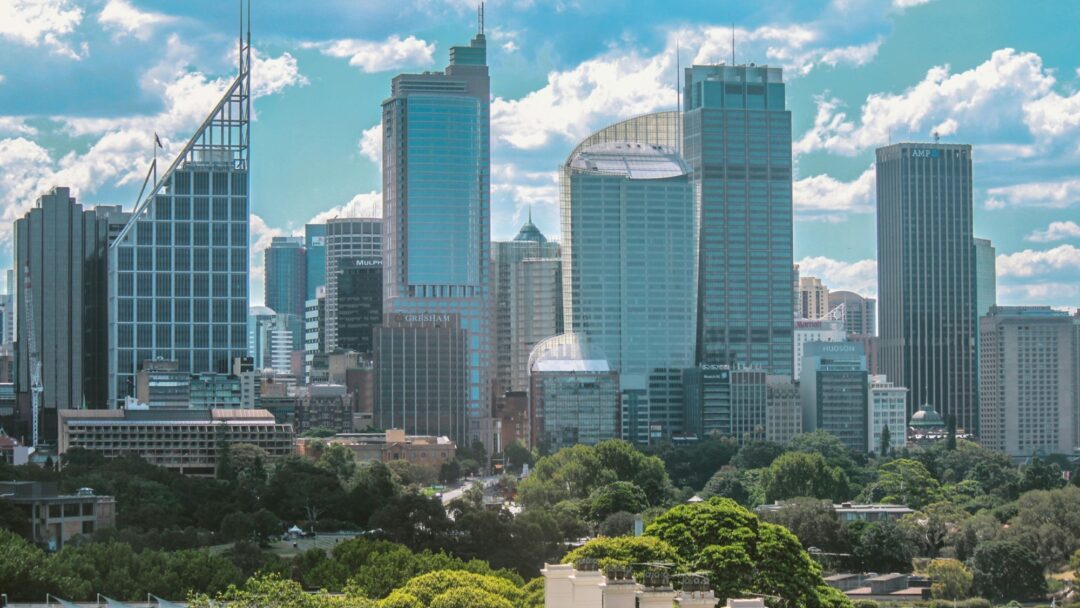
Disability Pride Month in July promotes awareness about people with disability and also celebrates individuals with disability.
Hannah Solomons - Sydney Disability Pride
Ablequest by 2RPH
Hannah Solomons - Sydney Disability Pride
•14 mins
Audio
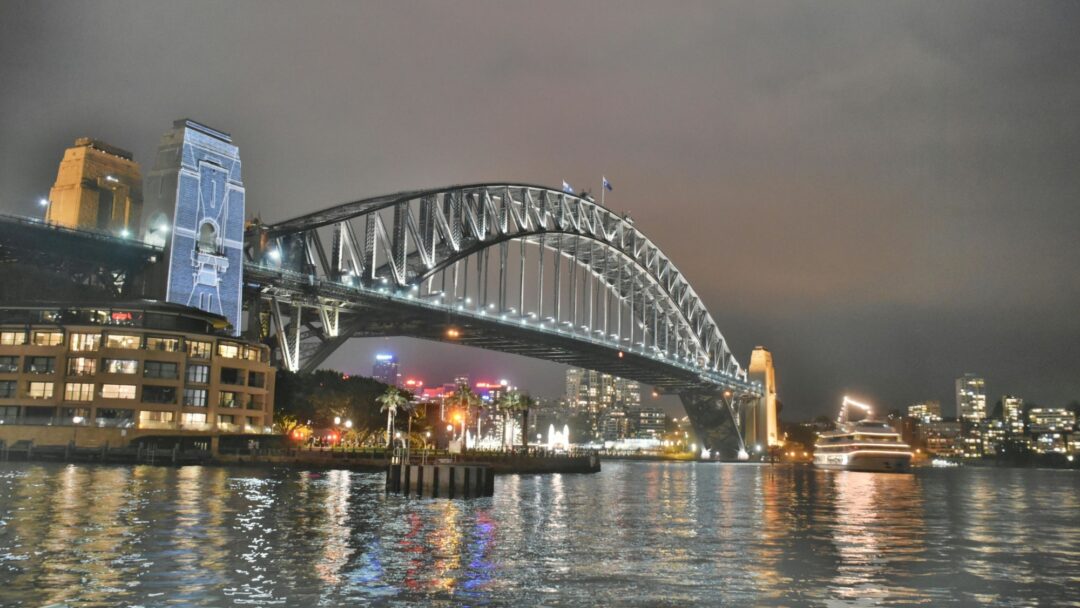
Deb Roach is a three-time pole dancing world champion yet she has only one arm.
Deb Roach
Ablequest by 2RPH
Deb Roach
•13 mins
Audio
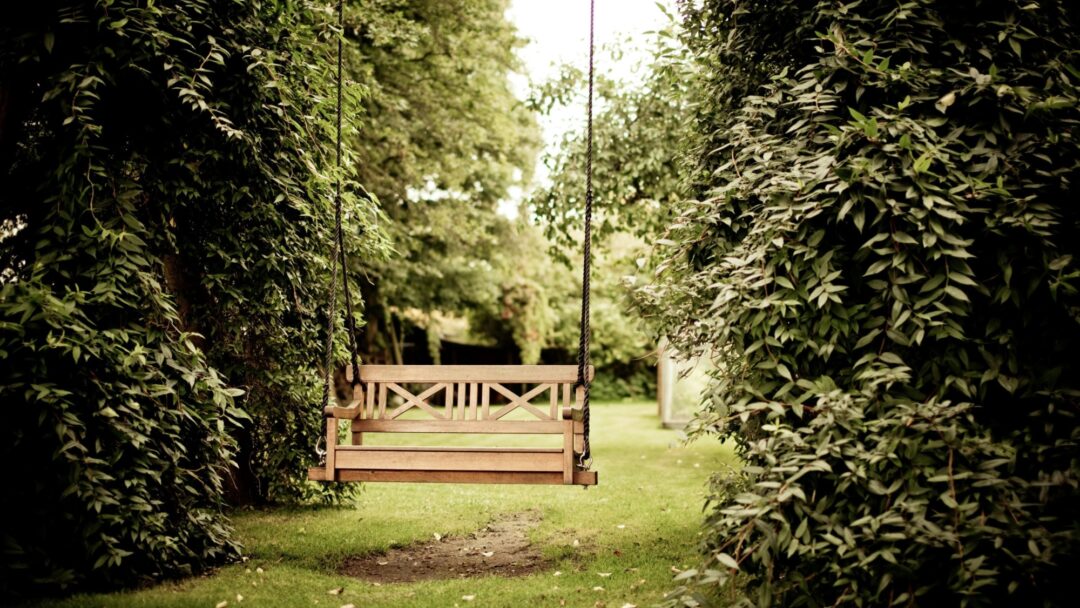
Being in nature is good for you whether it is being in the garden or walking along the beach.
Kayte Kitchen - Admirari Nature Therapy
Ablequest by 2RPH
Kayte Kitchen - Admirari Nature Therapy
•14 mins
Audio
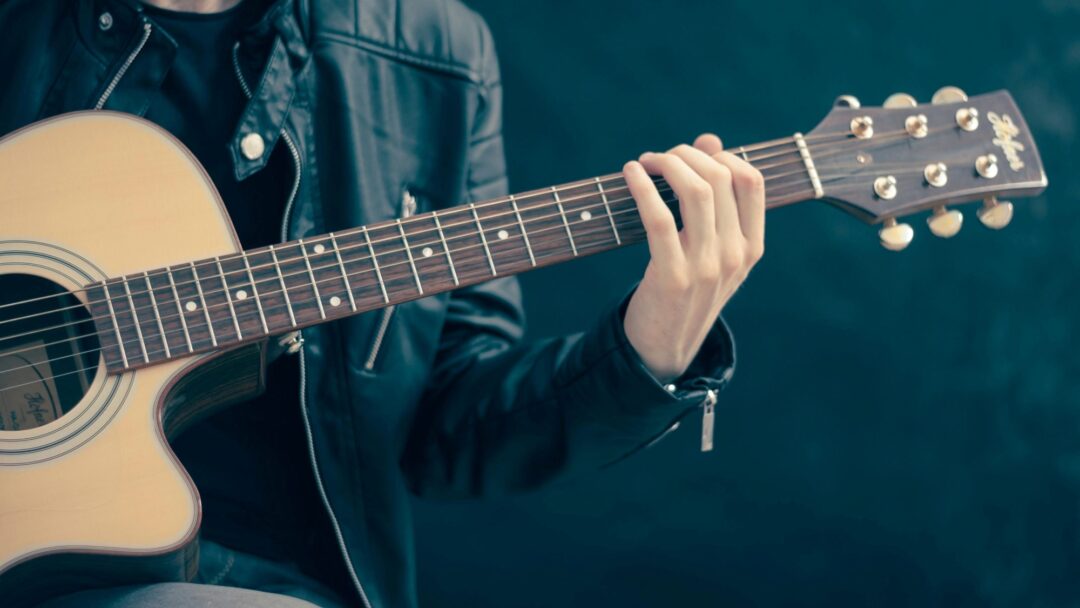
Music can evoke emotions that bring back memories and the same is true for people living with dementia.
Zara Thompson - Music Therapy
Ablequest by 2RPH
Zara Thompson - Music Therapy
•14 mins
Audio
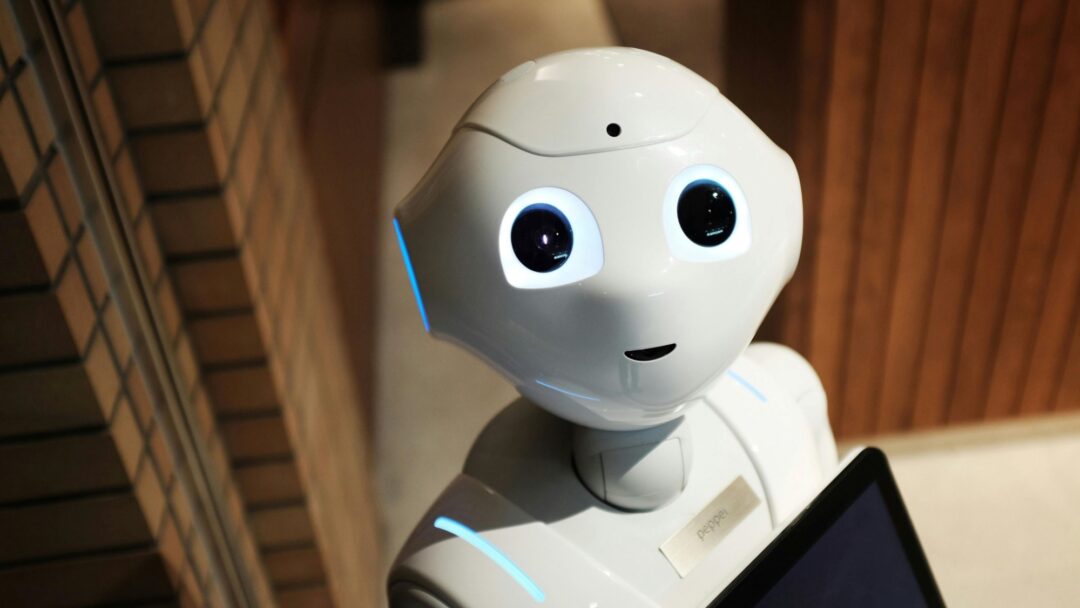
Laura Boccanfuso is founder and CEO of Van Robotics, a social robotics company based in South Carolina in the United States.
Laura Boccanfuso - Van Robotics
Ablequest by 2RPH
Laura Boccanfuso - Van Robotics
•14 mins
Audio
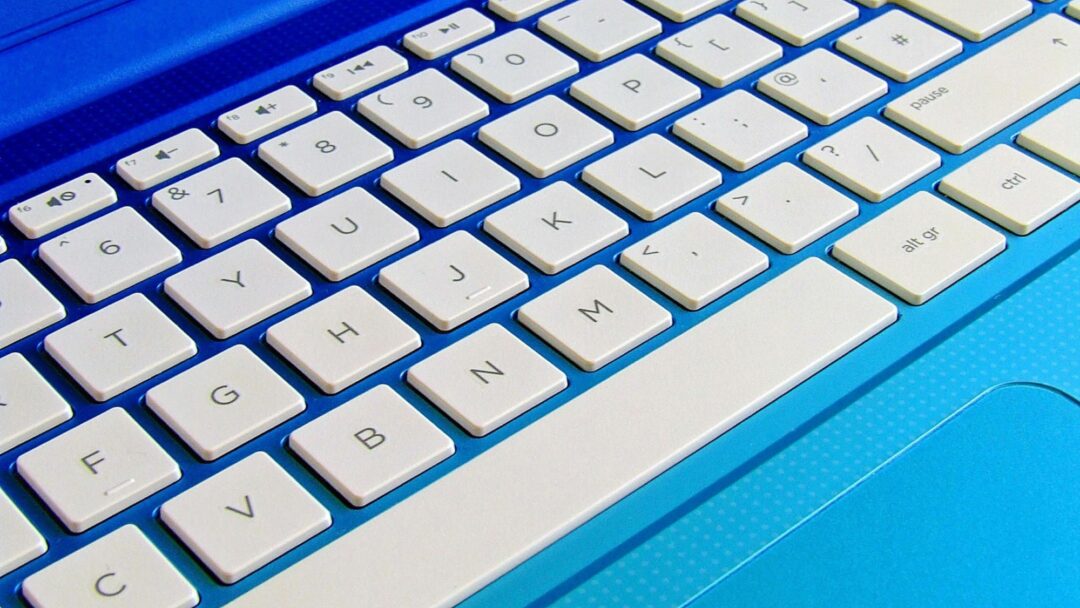
Two years ago Maggie O'Connell, in her mid 20's never had a full time job.
Maggie O'Connell - AFP
Ablequest by 2RPH
Maggie O'Connell - AFP
•14 mins
Audio
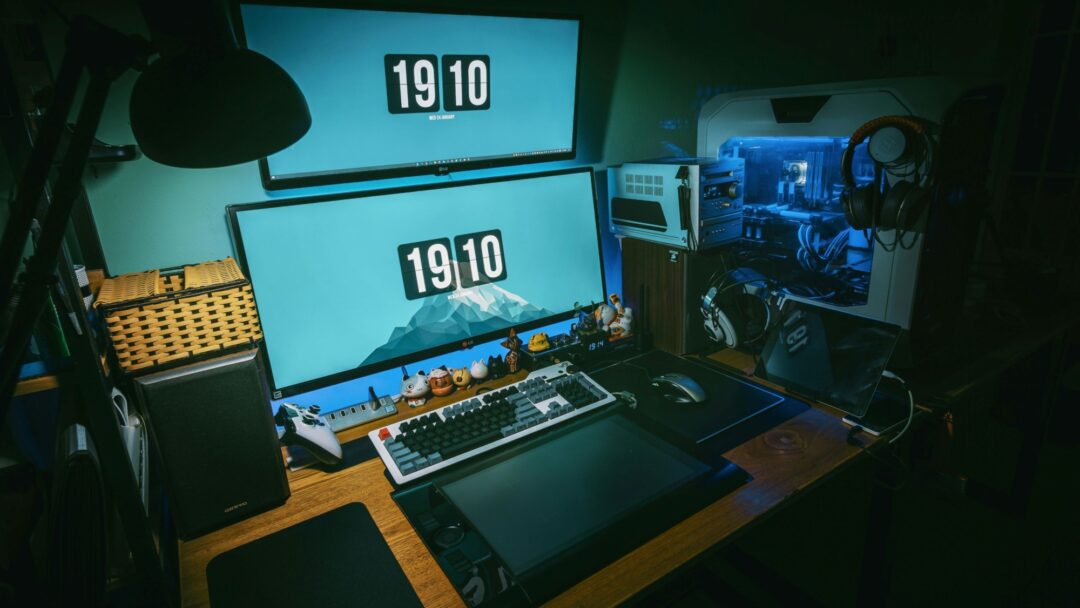
Julie Ross-Edwards, founder of Head High Disability Services, returns to Ablequest to speak more about Head High's philosophy and special approach.
Head High (Update)
Ablequest by 2RPH
Head High (Update)
•13 mins
Audio
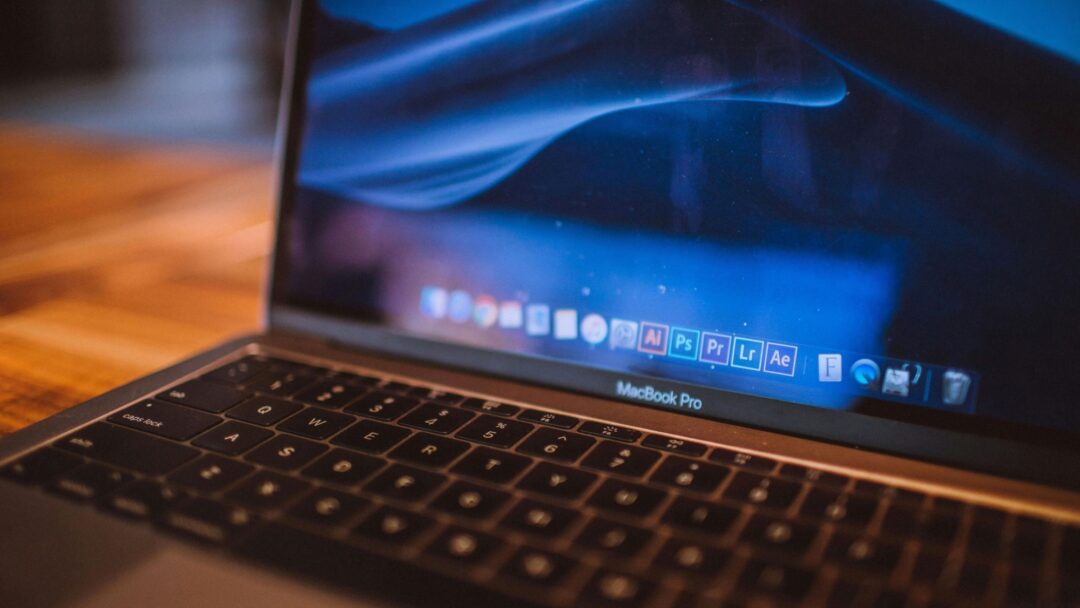
David Woodbridge, an expert in assistive technology for people with no or low vision, is a regular guest on Ablequest.
David Woodbridge
Ablequest by 2RPH
David Woodbridge
•14 mins
Audio

Pete Horsley is the Founder of Remarkable, a global start up and initiative of the Cerebral Palsy Alliance.
Pete Horsley - Remarkable Disability Tech Summit
Ablequest by 2RPH
Pete Horsley - Remarkable Disability Tech Summit
•14 mins
Audio